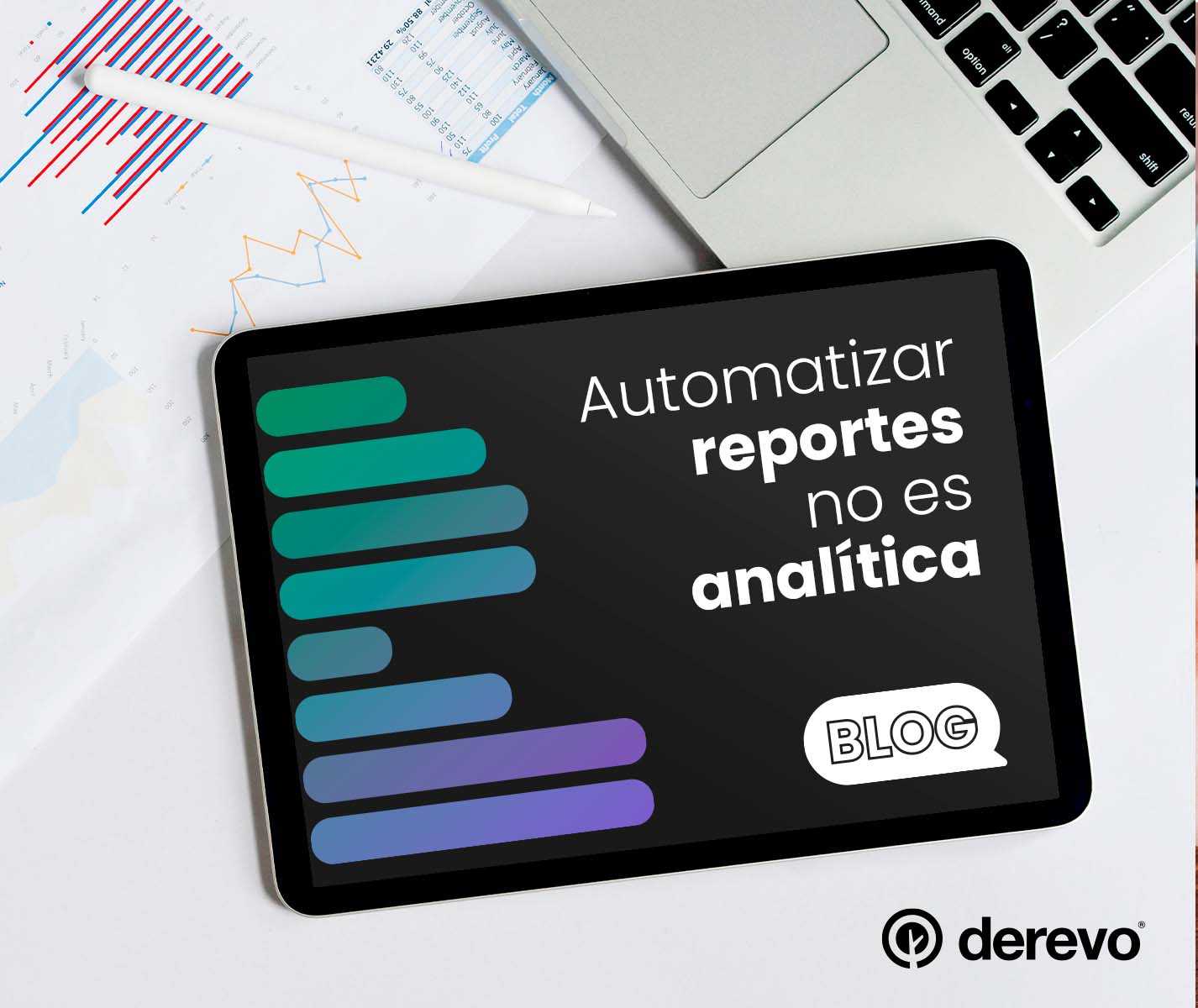Automating Reports is not Analytics
There's a word that makes me uncomfortable; calling BI dashboards reports.

Maybe I am not alone in that, maybe it happens to most professionals in this discipline ... or maybe not. For me a report, is something static, when you are looking for a piece of information to not make a decision you will surely find it in a report, and by this I mean not making a decision or making the same decisions that are needed when a piece of information of certain characteristics appears.
But analytics is more than a static report, it is about digging, discovering and searching for what is not evident. It is first of all, questioning what the report itself tells you.
Many of us have made the mistake of automating reports and calling that "BI." But other than the production time benefits, a profit and loss statement in PowerBI is no different than one created years ago in Cristal Reports. But one created for the purpose of uncovering areas of opportunity, presenting information for quick decision making or to encourage further exploration of what is being presented, that's BI.
Decision making
Let's face it, most decisions in a job become second nature after some time of experience in the role. The complexity of the role will of course elevate the complexity and impact of the decisions being made. But we know that there are certain decisions that relate directly to the circumstances of the data and that some of those decisions have a pattern of occurrence or have simply been made before in similar circumstances.
We don't need a magic wand to detect them, generally the situation shows up when two or more indicators merge together, often at a certain time of the year. When this happens, a traditional report of established frequency will be ready to let us know and we can pick up the phone or write the mail to execute the XV33 plan specially designed for these cases, or we will execute a set of actions that have already given us positive results in the past.
However, I keep thinking about the expression: "we can't bathe twice in the same river." It refers to the fact that there are always differences, because everything changes, more so in this modern environment of digital reality and business environments that progress faster than we can adapt to them.
Perhaps for slow moving business areas that rely on monthly summations, an automated report is all they need, a few tables of related facts to quickly find the most wanted and the business case determines the solution. But there are areas that benefit from a more immediate response, to seize opportunities or correct bugs before losing more money: sales, production, logistics come to mind. In these cases, being left with static reports can limit the number of options for decision making. It is then that investigating, questioning, probing the particulars of the case become valuable. Make no mistake, the faster they can be done and the wider the organizational impact can be foreseen, the better. Human skills are essential here, but so is the construction and availability of analytical tools to perform these tasks. This is when a staticical report is simply not enough.
Culture and responsiveness
One person can make a difference, but gold does not shine buried. The necessary conditions, equipment, culture, infrastructure must be in place to be able to do this work quickly and as efficiently as possible. In order to be able to take advantage of the results obtained from questioning our data, a supporting infrastructure around decision making is generally required. Without that, the benefits would be limited to the influence the analyst could have and their presentation and persuasion skills (which should not be few).
An organization with a data-driven culture and an emphasis on being responsive, to be able to execute decisions made quickly, maximizing their effectiveness will derive even greater benefits from a deep analytics practice.
Which way then?
Analytics is more than just reporting, calling the automation of the same reports that have been generated for decades "business intelligence" is a limited way of extracting value. Analytics that consistently delivers business value is an interaction of people, culture, infrastructure and information tools (reporting, BI, advanced analytics, forecasting) that must come together to enable the flexibility, autonomy and entrepreneurship needed to generate competitive advantage today.
Without all of this, we are still at the expense of the privileged few with the ability to make decisions or with certain internal monopolies of information, their capacity for reaction, analysis, preparation and experience. And when this is not enough, instead of being the leaders who generate vision and set direction, they become bottlenecks that prevent maximizing profits in today's business environments.
Investing in business intelligence dashboards, data governance, infrastructure, data democratization, data culture and data literacy are nowadays essential to generate better dividends and business results, something far beyond the automation of reports that sometimes we set as a goal and then we are surprised that they do not generate the expected returns on investment. To invest intelligently, with strategy, is to move from being passive to active and reap the true benefits of the software.
Automated reporting is only part of what it really means to practice analytics in a company. Today's business users have the opportunity to create analytical dashboards beyond the standard, repetitive, and traditional ones they already have in Excel or that are created for them, share information, pinpoint, detect, interact in teams and make decisions together.
Limiting yourself to traditional automated static reporting significantly reduces the benefits of analytics, resulting in an environment where software is necessary, but not enough.
